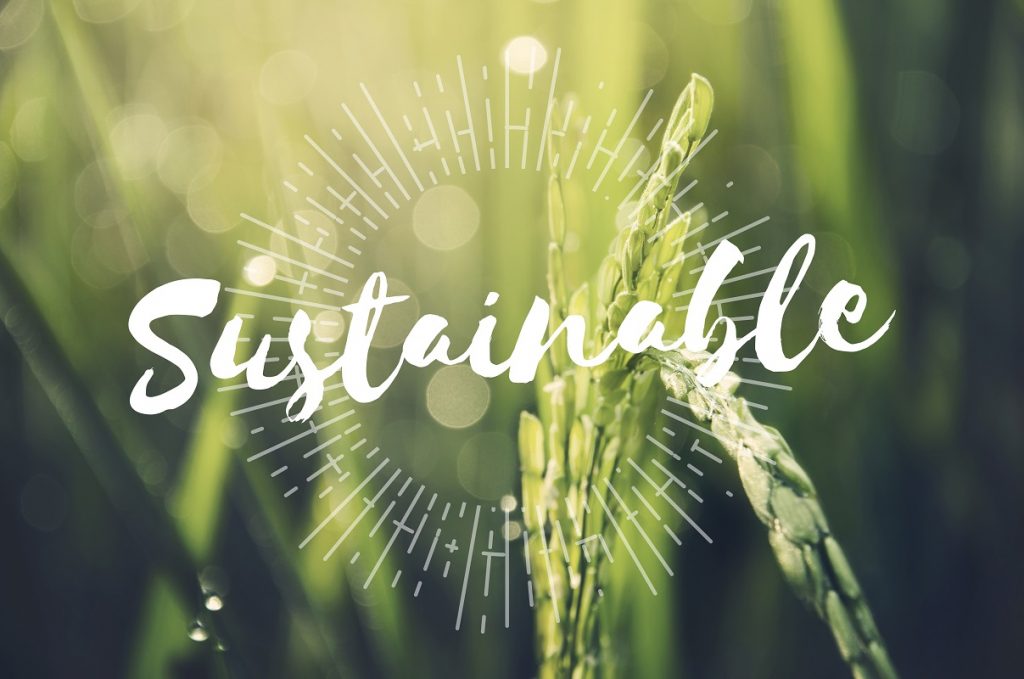
“Ha ha maale ha ha…ha ha taare ha ha”, as soon as monsoon activates in Nepal, this song and some other asaare jhyaure (old folk monsoon songs) echo among the terraces and plain fields flooded with water for rice cultivation. Stepping in the muddy field, singing their hearts out, dancing in the rain, playing games and splashing mud to each other, farmers gather to plant the paddy saplings. And we kid you not, these people don’t come together with only rice cultivation in mind, but also with the feeling of connectedness: with nature, with mother earth, with rain, with music, with each other and also with self. This is one instance among myriads that depicts spirituality as the soul of agriculture.
It is a very well-known fact that agriculture along with plants and animals binds well with disparate religious practices and rituals in numerous fragments across the globe. Farmers worship deities asking for rain on their field and pray for good yield. They believe that land, plants, animals and food are the gifts of God which should be handled with care and are subjected to penalization in the form of natural calamities, poor harvest, cattle death and illness in case of failure to do so. They live by faith and contemplate nature as the connecting bridge between the human world and the spiritual realm.
Although modern industrial agriculture highly emphasizes production and commercialization of agricultural products, things were different back then, during the commencement of agriculture. As the word speaks in itself, agriculture was initiated as a culture by the people who shared common values and beliefs with the idea of coming together to bring life on the barren lands. The ancient systems of agriculture did not consider earth as the property that could be used in the way human beings desired but entailed her as a living being who needed to be looked after and nurtured in a way that both the earth and the community could be benefited. The system passed from one generation to another as a culture and this was exactly where agriculture converged with sustainability.
However, with the advancement of research and technology, the cultural and spiritual values slowly disappeared from agriculture. People began to see earth as possession that could be exploited in whatever ways they wanted to. Blinded by gluttony, they started devouring soil and environment by applying harmful synthetic chemical fertilizers and pesticides. In quest of instant outcomes and increased production, they breached the law of nature and broke the balance. Consequently, our mother earth is on the verge of demolition due to perilous risks of climate change. And no other species is as responsible as us, human beings for bringing down our own home.
Nonetheless, there’s still a shred of hope that mother earth can be healed and the lost soul of agriculture i.e., spirituality can be rejuvenated. Some agricultural systems such as organic farming, biodynamic farming, permaculture, etc., are receiving virtuous attention recently. These systems highlight the holistic approach of farming and are based on the principles of spirituality such as respect, fairness and justice to each and every component of agriculture.
Evading from their void and exhausting lifestyle, people are now getting back to farm in pursuit of life and happiness. Children are being taught how miraculously life rises from the speck of grains when mixed with soil and nourished with water, care and patience. Schools are incorporating growing plants as spiritual activity so that students can learn to be responsible towards earth while feeling connected to her and be respectful to agriculture and food till the very last bite. Soil therapy is being recommended to reduce stress and anxiety in healthcare and curative fields. People are finally understanding that agriculture is not only about production but an art of living and cherishing mother earth.
So, if in any case, you are seeking to dig deeper inside yourself and build connection to something beyond physical existence, why not walk to the garden and get your hands dirty?
